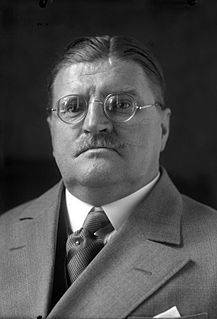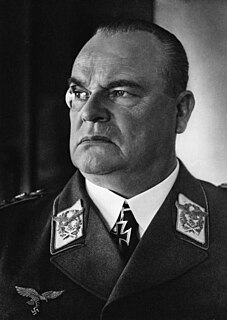 W
WKurt Blome was a high-ranking Nazi scientist before and during World War II. He was the Deputy Reich Health Leader (Reichsgesundheitsführer) and Plenipotentiary for Cancer Research in the Reich Research Council. In his autobiography Arzt im Kampf, he equated medical and military power in their battle for life and death.
 W
WHermann Foertsch was a German general during World War II who held commands at the divisional, corps and army levels. He was a recipient of the Knight's Cross of the Iron Cross of Nazi Germany.
 W
WFriedrich Gajewski was a German businessman with IG Farben and Wehrwirtschaftsführer during the Second World War.
 W
WHeinrich Gattineau was a German economist, Sturmabteilung (SA) leader, director of IG Farben and defendant during the Nuremberg trials.
 W
WErich von der Heyde was a German agronomist at IG Farben, an SS-Hauptscharführer and a defendant at the IG Farben Trial in Nuremberg.
 W
WHans Kühne was a German chemist on the board of IG Farben and a defendant during the IG Farben Trial.
 W
WCarl Ludwig Lautenschläger was a German chemist and physician.
 W
WWilhelm Rudolf Mann was a German factory manager for IG Farben and later with Bayer.
 W
WOtto Lebrecht Eduard Daniel Meissner was head of the Office of the President of Germany from 1920 to 1945 during nearly the entire period of the Weimar Republic under Friedrich Ebert and Paul von Hindenburg and, finally, under the Nazi government under Adolf Hitler.
 W
WAdolf Pokorny was a dermatologist. who primarily is known as having been a defendant in the Doctors' Trial at Nuremberg.
 W
WPaul Rostock was a German official, surgeon, and university professor. He was Chief of the Office for Medical Science and Research under Third Reich Commissioner Karl Brandt and a Full Professor, Medical Doctorate, Medical Superintendent of the University of Berlin Surgical Clinic.
 W
WChristian Schneider was a German chemist, industrial manager and, in the Third Reich, a Wehrwirtschaftsführer.
 W
WOtto Schniewind was a German General Admiral during World War II. He was a recipient of the Knight's Cross of the Iron Cross of Nazi Germany.
 W
WHugo Sperrle was a German military aviator in World War I and a Generalfeldmarschall in the Luftwaffe during World War II.
 W
WInge Viermetz was responsible for the Lebensborn in Nazi Germany. As an assistant to Max Sollmann, head of the Lebensborn, she was acquitted at the RuSHA Trial.